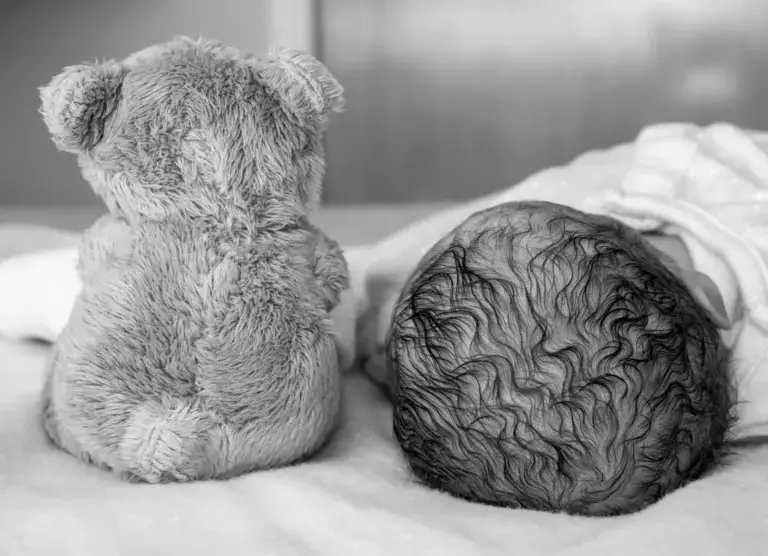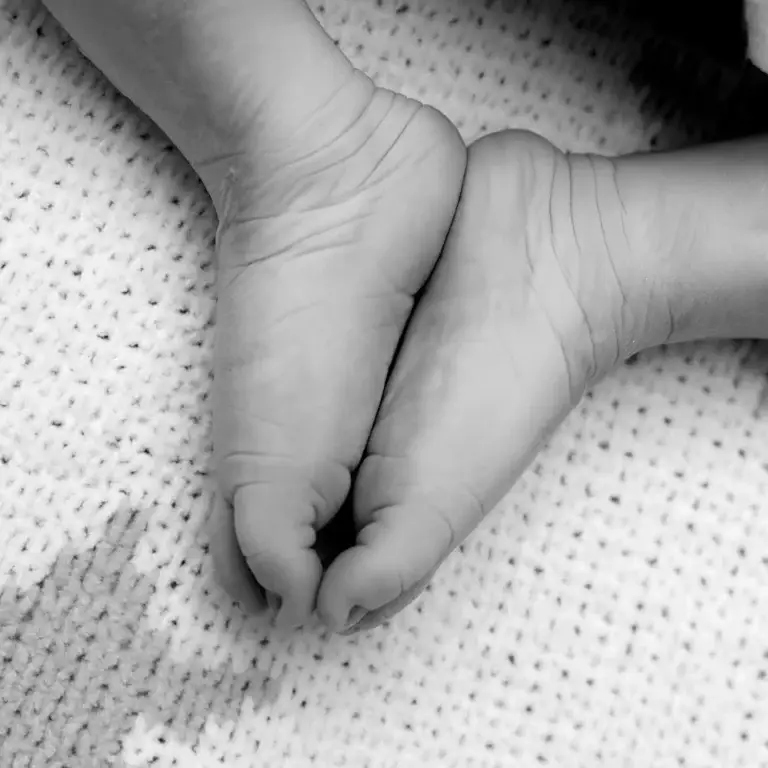For Eleanor, pregnancy was a time of hope and joy. She had long dreamed of becoming a mother, and when she found out she was expecting her daughter, Ava, her world seemed to shine a little brighter. She imagined Ava’s first giggles, her tiny hands reaching out, and the life they would build together. But all of that came to a halt when, at 38 weeks, Eleanor felt something wasn’t right.
“I had been feeling fine, and then one day, she just stopped moving,” Eleanor said softly, her voice cracking as she relived the memory. “I drank cold water, I lay on my side, I did everything they say you’re supposed to do. But she didn’t move.”
At the hospital, the doctor’s face confirmed her worst fears before the words even left his mouth. “There’s no heartbeat,” he had said gently. “I’m so sorry.”
Eleanor felt her entire world collapse in an instant. “I couldn’t breathe,” she said. “It felt like everything was crashing around me. This wasn’t supposed to happen. She was supposed to be safe with me.”
The next day, Eleanor delivered Ava. Wrapped in a soft blanket, her daughter was placed in her arms. “She was beautiful,” Eleanor said, tears streaming down her face. “Her little fingers, her nose, her dark hair. She was perfect. And she was gone.”
Leaving the hospital without Ava broke Eleanor in a way she couldn’t have imagined. “The emptiness was unbearable,” she said. “I felt like I was a shell of myself, like a part of me had died with her.”
At first, Eleanor tried to cope on her own. She avoided the nursery, where Ava’s crib and clothes remained untouched. She avoided friends and family, unable to face their well-meaning but often painful comments. “People said things like, ‘You’ll have another baby,’ or ‘At least you know you can get pregnant,’” she said. “But none of that mattered. I didn’t want another baby—I wanted Ava.”
The grief consumed her. Days turned into weeks, and Eleanor found herself spiralling into a deep depression. “I couldn’t eat, I couldn’t sleep,” she admitted. “I didn’t see the point in anything anymore. All I could think about was her and the life we were supposed to have.”
After several months, Eleanor reached a breaking point. “I started having thoughts that scared me,” she said quietly. “I thought about how I could escape the pain, about how maybe I didn’t deserve to be here if Ava couldn’t be.”
Her family, deeply worried, encouraged her to seek help. Eventually, Eleanor agreed and admitted herself to a mental health hospital.
The months Eleanor spent in the hospital were some of the hardest of her life. “I had to face everything I’d been running from,” she said. “The pain, the guilt, the anger—I had to confront it all head-on.”
Therapy became a lifeline for Eleanor. Through group sessions and one-on-one counselling, she began to unpack the overwhelming emotions that had been suffocating her. “I realised I’d been blaming myself,” she said. “Even though the doctors told me it wasn’t my fault, a part of me felt like I had failed her. Therapy helped me see that it wasn’t something I could have controlled.”
It was during her time in the hospital that Eleanor was given a set of photographs of Ava that the remembrance photographer had taken after her birth. At first, she couldn’t bring herself to look at them. “I was scared it would hurt too much,” she said. “But one day, my therapist encouraged me to take them out. And when I did… something shifted.”
The photographs became a source of comfort for Eleanor. “They reminded me that she was real, that she was mine,” she said. “Even though she’s not here, I can see her face, her little hands. I can remember the love I felt holding her. Those photos kept me focused during the darkest days. They gave me something to hold onto when I felt like I was losing myself.”
Years have passed since Eleanor left the hospital, but the journey of healing is ongoing. “Grief doesn’t have a timeline,” she said. “It doesn’t go away—you just learn to carry it.”
Eleanor continues to attend therapy, finding strength in the support of her counsellors and peers. “Therapy has been my anchor,” she said. “It’s taught me how to live with the pain without letting it consume me. I’ve learned it’s okay to have bad days, to cry, to feel angry. It doesn’t mean I’m weak—it means I’m human.”
She also finds solace in the small rituals she’s created to honour Ava’s memory. Every year on Ava’s birthday, Eleanor lights a candle and spends time looking through the memory box she made. Inside are the photographs, Ava’s hospital bracelet, a lock of her hair, and the blanket she was wrapped in.
Eleanor also had Ava’s name and birth date tattooed on her arm, surrounded by a delicate floral design. “It’s my way of keeping her with me,” she said. “Every time I look at it, I think of her. It’s a reminder that she was here, that she mattered, and that she’ll always be a part of me.”
Reflecting on her journey, Eleanor acknowledges how far she has come. “There were days when I didn’t think I’d survive this,” she said. “But I did. And I’m still here, still standing. That doesn’t mean it’s easy—it never will be. But it means there’s hope, even in the darkest moments.”
Eleanor has become an advocate for mental health awareness, especially for parents who have experienced loss. “It’s okay to ask for help,” she said. “There’s no shame in admitting you’re struggling. Losing Ava broke me, but reaching out for help saved me.”
Ava’s memory lives on in everything Eleanor does. “She may not be here physically, but she’s with me in everything,” she said. “Her life, though short, changed mine forever. And for that, I will always be grateful.”
Eleanor’s story is a testament to the enduring power of love, the importance of mental health support, and the strength it takes to keep going. “The pain doesn’t go away,” she said. “But neither does the love. And that love is what keeps me going.”

